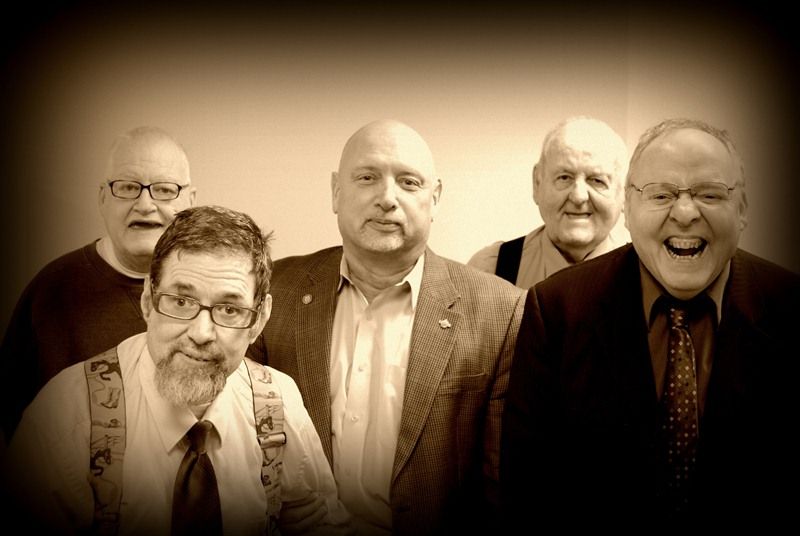
Bark’s Bytes #24 | Pick One
I’ve been writing these blog posts for a little over two years now and, with this being my 24th posting, I thought it was time to review and consider my “body of work”. The following list is what I feel are my most notable messages.

• Although improved since the arrival of our marketing & communications coordinator, I still have a tendency to write too much resulting in TLDR (Too Long Didn’t Read) syndrome.
• Reform will only happen when the “System” honors the recipient’s choice on the support needed for preferred housing, meaningful work, reasonable transportation, and genuine relationships. A safe home, sufficient food, adequate healthcare, and meaningful work are essential aspects in the life of an adult that no one would voluntarily give-up and should not be denied to others.
• The bureaucracy needs to deconstruct and focus on simple systems that (i) assess eligibility and support needs; (ii) authorize providers; (iii) account for expenses; (iv) protect health & safety; and (v) measure quality. From my view, the task for the Department of Human Services is to simplify and support providers/caregivers in delivering services that measurably improve the lives of recipients and their communities in a manner that is sustainable by the citizens of Minnesota.
• Funding of day service programs for people with intellectual or developmental disabilities produces nearly $3.00 of economic benefit for every $1.00 spent by the State. These benefits actually help to reduce and offset the actual, unavoidable cost of the 24-hour long term care for these individuals. Apart from any humanitarian concern for the less fortunate, State cuts to such programs are penny-wise and dollar-foolish.
• Meaningful employment should be defined as – (i) a task preferred by the client; (ii) completed in a setting of their choice; (iii) appropriate for their capabilities; (iv) with a consistent desired schedule; that (v) generates a satisfactory wage. While a job can certainly enhance one’s life, it does not define it like choice. Moreover, if one performs any activity for any amount of compensation, they have a right to call it a real job.
• Done correctly, the commensurate wage provisions provide an important work option to people with disabilities and paying a “special minimum wage” is not exploiting those we serve. Demanding that people with a significant disability requiring 24-hour support be paid minimum wage regardless of their productivity is both disrespectful to the individual and contrary to sound business practices.
• Segregation is not an issue in Minnesota and integration is a personal definition that should be valued. Moreover, based on some solid research, it could be argued that 74% of our citizens with intellectual or developmental disabilities of working age are in the workforce at minimum or competitive wages and benefits since they are living in their communities without any public support.
• The success stories I see most days inspire me to persevere despite what the critics say; and I mostly see sameness with clients that want to be respected, given choices in their lives, and be valued in their communities. It is no longer acceptable to just do good work. We must also tell others why the clients and communities we serve are better for our services being provided or accept not being valued by policymakers.
• If the degradation of life in Minnesota is to be stopped, citizens will need to get involved in community improvement projects, model respectful behavior, lift others up, and insist on competent political leadership. It comes down to every citizen expecting that our civic and political leaders have a broader vision of what is good for our communities and the courage to find innovative strategies to confront the challenges we face.
• The only thing that makes people and organizations great is their willingness to be not great along the way. The willingness to fail on the way to reaching a bigger goal is the untold secret of success. Our mantra should be “Believe in what you do – not in what you might accomplish”.
• If you cut through all the distractions we allow to clutter our days, the choices become clear: faith in a God, an ideal, or a purpose larger than yourself; devotion to family and traditions; integrity and loyalty; having fun; and keeping things simple.
What I learned from this review is that writing these posts helps me view our challenges in a more optimistic light because when we focus on how wrong things are we lose the power to act effectively. So I am going to act on the following list: (i) ensuring that service authorizations reflect the client’s choice; (ii) telling others why clients and communities we serve are better for our services being provided without TLDR syndrome; (iii) pursuing meaningful work options for clients; and (iv) setting time aside each day for personal reflection. I hope something in this editorial resonates with you for action. The picture included with this post is of myself and four clients that I have known for 33 years. I would like to think we have more than just a business relationship and that my effort is worthy of their trust.
